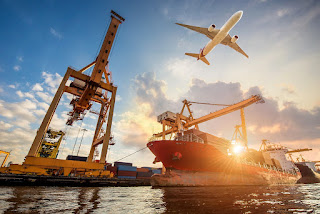Harnessing AI for Smarter Predictive Pricing in Cargo Services
In today's fast-paced global market, the efficiency and agility of cargo services are paramount. One of the significant challenges faced by the logistics sector involves the dynamic nature of pricing strategies which directly influence profitability and customer satisfaction. Here, Artificial Intelligence (AI) plays a transformative role, especially in predictive pricing mechanisms. Companies like Revenue Technology Services (RTS) are at the forefront of integrating AI to revolutionize cargo pricing and dynamic pricing strategies.
Predictive pricing is an approach where data is analyzed to forecast the best possible pricing strategies in real-time. This method not only considers historical data but also real-time inputs from the market which influence price fluctuations. In the realm of cargo services, where variables such as fuel costs, shipment volumes, seasonal demand, and geopolitical events can drastically alter costs, AI's role becomes indispensable.
AI-driven predictive pricing tools developed by companies like RTS utilize advanced algorithms and machine learning techniques to parse through vast datasets. These tools can detect patterns and trends that are not immediately apparent to human analysts. By leveraging these insights, cargo companies can set prices that are competitive yet profitable, ensuring optimal resource allocation and operational efficiency.
The application of dynamic pricing in cargo services further illustrates AI's utility. Dynamic pricing involves adjusting prices on the fly in response to market demand and supply dynamics. AI systems can analyze current market conditions, including competitor pricing, demand surges, and capacity constraints, to recommend price adjustments. This capability ensures that cargo companies can maximize their revenue while remaining attractive to customers who are comparing rates in real time.
Moreover, AI in predictive pricing also contributes to better customer service. By accurately forecasting price trends and adjusting them dynamically, companies can offer more transparent pricing to their customers. This transparency builds trust and can lead to higher customer retention rates. For instance, if predictive analytics indicate a decrease in demand, prices can be adjusted to attract more customers, thereby optimizing load capacities and reducing the number of empty runs.
Furthermore, the environmental impact of smarter pricing cannot be overlooked. Efficient pricing helps optimize routes and load factors, which in turn reduces carbon emissions. Thus, AI not only contributes to economic efficiency but also supports broader sustainability goals within the logistics industry.
In conclusion, the role of AI in predictive pricing for cargo services is pivotal. As demonstrated by Revenue Technology Services, integrating AI into pricing strategies offers a competitive edge by enabling smarter, data-driven decision-making. This not only enhances profitability but also improves customer satisfaction and supports sustainable practices. With ongoing advancements in AI technology, the potential for further innovations in cargo pricing and dynamic pricing remains vast, promising even greater efficiencies and market responsiveness in the future.



.jpg)

Comments
Post a Comment